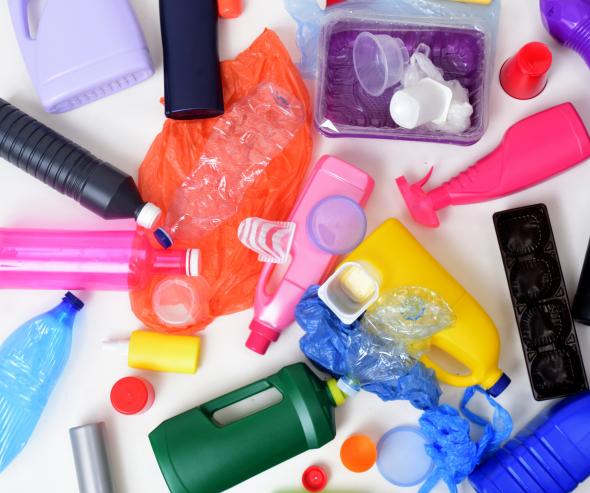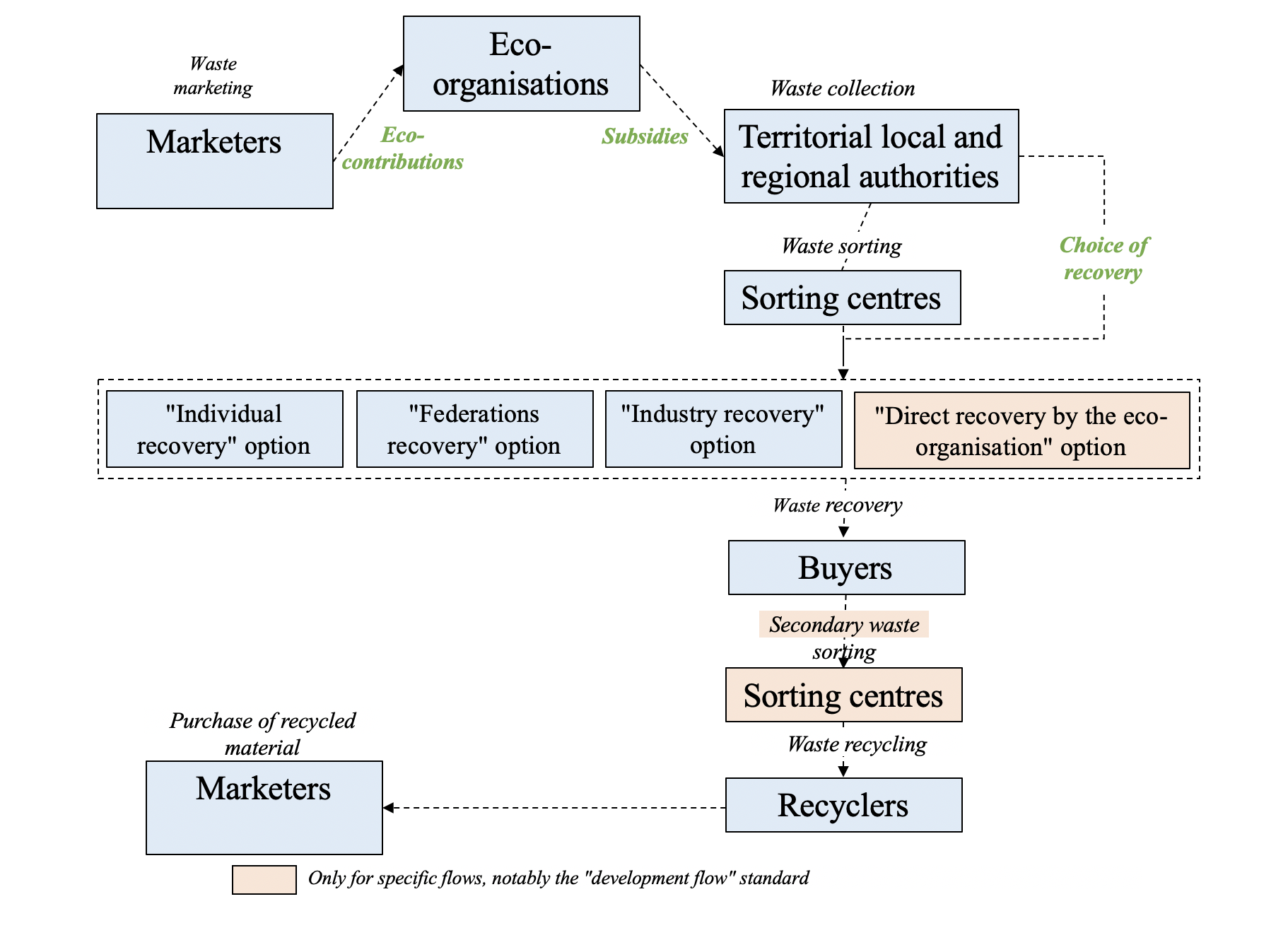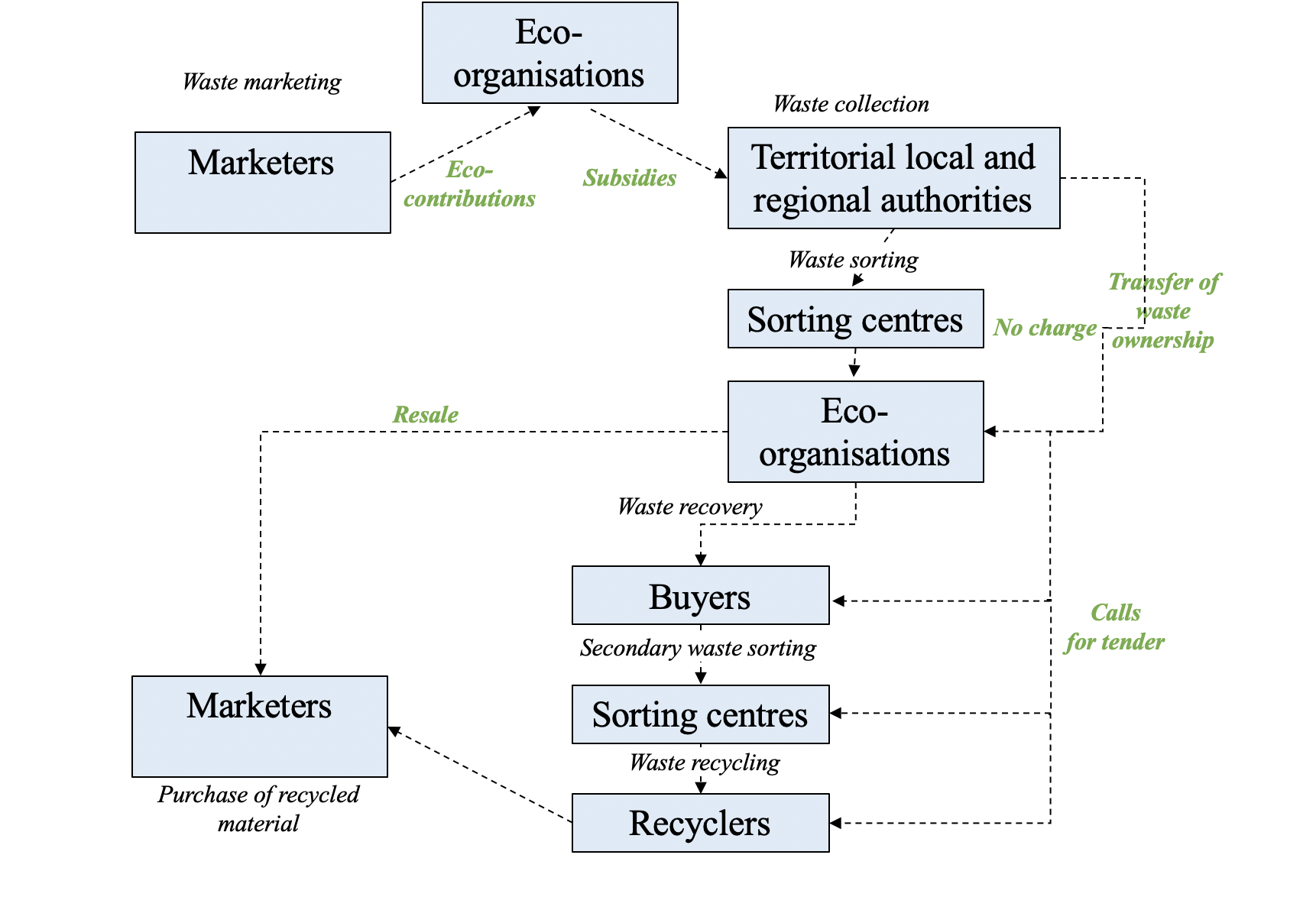Circular economy: the Autorité published a mitigated opinion on the reorganisation of the household plastic packaging sector and on the balancing mechanism stipulated in the new draft order

The Autorité de la concurrence has published a mitigated opinion on the balancing mechanism envisaged for the draft amending order regarding the approval procedure and specifications for eco-organisations in the household packaging sector, which has been submitted for its examination.
The issues
Plastic material is made up of many different resins, making its collection and processing particularly complex. Therefore, although approximately 70% of household packaging is recycled today, only 28% of household plastic packaging is recycled. Moreover, this recycling rate shows strong disparities according to the categories of plastic resins concerned, as 60% of plastic bottles and flasks are recycled, while only 10% of other categories are.
However, and this is where the challenge lies, European and national regulations on the transition to a more circular economic model impose ambitious and binding recycling targets: 65% of household packaging waste and 50% of plastic packaging waste must be recycled by 31 December 2025. By 31 December 2030, these rates must have increased to 70% and 55% respectively [1].
To achieve these objectives, the Order of 15 March 2022 reorganises the household plastic packaging waste management sector (i.e. separate collection, sorting and recycling activities) around three axes:
- at the collection stage, the completed extension of the sorting instructions by 31 December 2022, to extend waste sorting to all plastics and direct them to an appropriate recycling channel;
- at the sorting stage, the transformation of the framework initially developed, based on i) the overhaul of sorting models and quality standards for the plastic material sorted in sorting centres, and ii) the modernisation of the industrial sorting tool; and
- at the recycling stage, the development of a new sector, through the emergence of a sustainable and efficient recycling industry, whose economic model implies a guarantee of material supplies and outlets for recycled materials, to amortise the investment costs.
The planned reform
The French Minister of the Economy, Finance and Recovery has referred to the Autorité for an opinion on a draft order amending the specifications for eco-organisations in the extended producer responsibility (EPR) sector for household packaging, with a view to introducing a specific balancing mechanism between the approval-holders with regard to the obligations introduced by the Order of 15 March 2022. This mechanism aims to distribute the obligations relating to the recovery and recycling of certain flows of eco-organisations according to their respective market share.
The organisation of the EPR sector for household plastic packaging, prior to the adoption of the Order of 15 March 2022, can be presented as follows:

In the Order of 15 March 2022 (for which the Autorité was not referred to for an opinion), the Government granted eco-organisations exclusive rights to organise the recovery and recycling of certain specific streams of household plastic packaging waste that meet, on the one hand, the transitional sorting models for one plastic standard and two plastic standards "excluding clear PET", as of 17 March 2022, and, on the other hand, the "developmental stream" and "simplified plastic sorting model" standard, as of 1 January 2023.
The organisation of the EPR sector for household plastic packaging, after the adoption of the Order of 15 March 2022, regarding specific streams, can now be presented as follows:

The balancing mechanism submitted to the Autorité for examination is the operational consequence of the Order of 15 March 2022 and is therefore part of a more global change in the organisation of the household plastic packaging sector, provided for by this same Order.
The reservations issued by the Autorité
In the context of a referral for an opinion on a regulatory text, the Autorité identifies any restrictions on competition that it may entail and verifies that these restrictions are justified by a general interest objective and that they are necessary and proportionate with that objective. It also examines whether there are less restrictive competition measures for achieving the same objective and, if so, proposes such measures.
- On the new organisation of the EPR sector for household plastic packaging
In its opinion, the Autorité points out that the exclusive right to organise recovery, combined with a large volume of waste, could lead to the foreclosure or compartmentalisation of the plastic material sector insofar as it allows eco-organisations to exercise complete control over the supplies and markets for plastic material not yet recovered. Indeed, this exclusivity is likely to restrict competition between recovery operators, limit the choice of the local authorities in their recovery options and deprive them of the profit generated by the marketing of this waste.
While the measure seems both necessary - due to the eco-organisations' power to structure investments - and proportionate - in that it concerns only a portion of the overall household packaging waste stream and essentially includes plastics that are not yet recoverable or only to a limited extent - the Autorité believes, however, that its application must be monitored over time.
Recommendation
The Autorité therefore recommends that the draft order be amended to include a provision on the duration of the exclusive right to organise the recovery and that the application of this exclusive right does not extend beyond the future approval period, i.e. the end of 2029 at the latest.
In any case, the Autorité recommends that a review clause be included in the draft order to allow, on the basis of an audit to be carried out in 2025, an examination of the industrial sorting, secondary sorting and recycling capacities of the sector and to analyse the appropriateness of maintaining an exclusivity clause.
- On the balancing mechanism
The decision to set up a balancing mechanism reflects the government's desire to ensure the fair distribution among eco-organisations of their obligations relating to the organisation of the recovery and recycling of certain specific streams of household plastic packaging waste, as introduced by the Order of 15 March 2022. Such a mechanism makes it possible to ensure a presence downstream for eco-organisations with a small share of the upstream market. For this reason, some industry players (including current licensees and local government representatives) welcome this mechanism, which they believe would have a "virtuous effect".
However, the Autorité questions the appropriateness of this balancing mechanism and considers that this measure, even if necessary, is not proportionate to the pursued objective, in that it reinforces the very high market share of the Citeo Group, which is strengthened by the presence of significant barriers to entry on the markets concerned.
The Autorité also points out that there is a risk of imbalance in favour of the Citeo Group in the implementation of the balancing mechanism, in that the draft order provides that the implementation and operational terms of the mechanism will be defined in an agreement between the approved eco-organisations.
Recommendations
The Autorité therefore recommends that the draft order be amended to:
- limit the benefit of the mechanism to eco-organisations with an upstream market share of less than 50%;
- provide for a review clause to allow the evaluation of the effects of the mechanism on the market and potentially readjust it;
- empower ADEME (The French Agency for Ecological Transition) to rapidly collect more optimal information from the sector and make it available to all eco-organisations; and
- ensure a balance between eco-organisations in the implementation and operational terms of the balancing mechanism, on the one hand by reintroducing implementation conditions, particularly relating to the recovery of surplus tonnages and, on the other hand by entrusting the management of the control of the agreement between eco-organisations to an autonomous coordination structure.
[1] Directive (EU) 2018/852 of the European Parliament and of the Council of 30 May 2018 amending Directive 94/62/EC on packaging and packaging waste, amended Article 6(1).
Opinion 22-A-05 of 16 June 2022
Contact(s)
